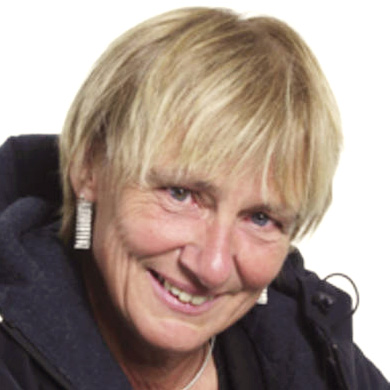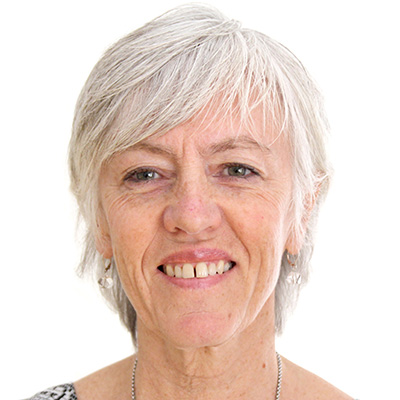University-based teacher educators seen through the eyes of school-based teacher educators

Promoting Active Civic Education and Democracy in Teacher-training: A model from an ERASMUS+ project
May 5, 2019
Student Teachers Working With and in Communities
May 19, 2019University-based teacher educators seen through the eyes of school-based teacher educators

Student teachers often complain about lack of communication between representatives from the different disciplines included in teacher education (Smith, 2015, 2016). In a recent study, a group of school-based teacher educators (mentors) with and without mentor education are interviewed focusing on university-based teacher educators’ (tutors’) competences and responsibilities (Helleve & Ulvik, 2019).
Third space
Collaboration in third spaces means to create new roles for teacher educators focusing on student teachers’ learning and deals with more than organization and reorganization of teacher education. The third space is a state of inter-subjectivity, a transformative space where the potential for an expanded form of learning and the development of new knowledge are heightened (Gutiérrez, 2008). The idea of a third space presupposes the notion of a first and a second space. In the case of teacher education, schools and mentors represent the first space and universities and tutors the second. However, the creation of a third space also deals with organization. The responsibility and possibility for creating meeting-points lies with the university and the tutors representing the second space. Willingness to participate in third spaces lies with mentors as well as tutors. Presuppositions for inter-subjectivity and development of respectful disagreement according to Matusov (2001) are that the participants share a common aim and that collaboration is built on respectful disagreement and agency. Mutual confidence, respect and trust are basic for the representatives of the first and second space in order to participate in the third space.
“We call them the professors”
Findings show that mentors have an unclear understanding of who the tutors are. There is no common agreement among the mentors on how tutors should be addressed. Different labels are used. The expression teacher educator does not seem to be a familiar label for either group as the mentors see it, except for some of the mentors who have fulfilled a formal mentor education. A presupposition for inter-subjectivity in the third space is confidence and trust. The labels used by the mentors concerning representatives from the second space may indicate distance and uncertainty and most likely lack of confidence.
Teacher educators need practice
School experience is judged as more important than research. Accordingly, participation in the third space is dependent on experiences from practice for representatives of first and second space which focus on student teachers’ learning.
The purpose of research
Mentors agree that university-based teacher educators should be concerned with research, but not for the purpose of doing research in itself. Research should be a benefit for education.
In general, mentors in this study tend to see their own role as providing a practical approach, while tutors mainly contribute with a theoretical perspective. Practice and theory are thereby perceived as two different worlds (Kvernbekk, 2012). This view on division in work may be strengthened when more tutors have a PhD and no classroom experiences, which can contribute to additional fragmentation in teacher education.
A common aim
However, the mentors acknowledge the common aim they have with the tutors of educating good teachers and they also see the importance of learning from each other. They have something in common which is one of the assumptions for inter-subjectivity in the third space (Gutiérrez, 2008; Matusov, 2001). Another assumption is respectful disagreement. An educated mentor seems to be even more concerned with the necessity for different competences combined with the possibilities to link the two cultures. Through mentor education, they have collaborated with university-based teacher educators and conducted their own research project highlighted by theory. Educated mentors’ position may be crucial in building possible meeting-points in the third space (Zeichner, 2010) in order to encounter the critics about teacher education going on in two different cultures.
References
Helleve, I. & Ulvik, M. (2019). Tutors seen through the eyes of mentors assumptions for participation in third space in teacher education, European Journal of Teacher Education
Gutiérrez, K. (2008). Developing sociocultural literacy in the third space. Reading Research Quarterly, 43,148-164.
Kvernbekk, T. (2012). Argumentation in Theory and Practice: Gap or Equilibrium? Informal Logic, 32(3), 288-305.
Matusov, E. (2001). Intersubjectivity as a way of informing teaching design for a community of learners’ classroom. Teaching and Teacher Education, 17(4), 383-402.
Smith, K. (2015). The Act of Diplomacy: Looking back at the position as the Head of teacher education. In R. Clift, J. Loughran, G. Mills, and C. Craig (Eds.), Inside the Role of the Dean. International perspectives on leading in higher education, edited by, 132-146. London-New York: Routledge.
Smith, K. (2016). Partnership in Teacher Education-Going Beyond the Rhetoric, with Refernce to the Norwegian Context. C.E.P.S. journal (Center for Educational Policy Studies Journal. 6(3), 17-36.
Zeichner, K. (2010). Rethinking the connections between campus courses and field experiences in college- and university-based education. Journal of Teacher Education, 61(1-2), 89-99.



 Ingrid Helleve is a professor at the The University of Bergen (Department of Education). She is part of the Teacher Professionalism and Education research group. Her research interests are related to professional development and to challenges in the introduction of computer technology in schools for all parties in the education system.
Ingrid Helleve is a professor at the The University of Bergen (Department of Education). She is part of the Teacher Professionalism and Education research group. Her research interests are related to professional development and to challenges in the introduction of computer technology in schools for all parties in the education system. Marit Ulvik is a professor at the Department of Education at the University of Bergen in Norway. Her main research interests are professional development and “Bildung”, including research on teacher educators, teacher education, newly qualified teachers, mentoring, action research and teaching. She has published in national and international journals and books.
Marit Ulvik is a professor at the Department of Education at the University of Bergen in Norway. Her main research interests are professional development and “Bildung”, including research on teacher educators, teacher education, newly qualified teachers, mentoring, action research and teaching. She has published in national and international journals and books. 

